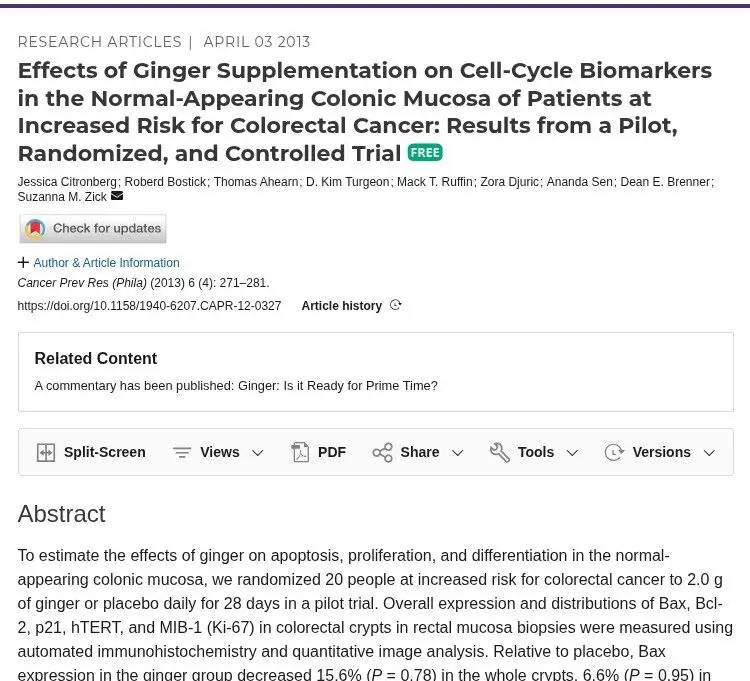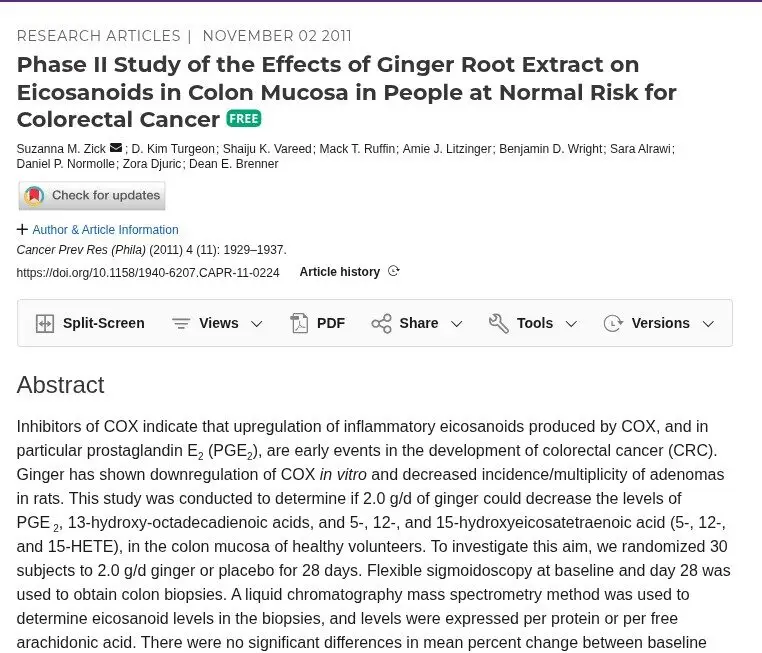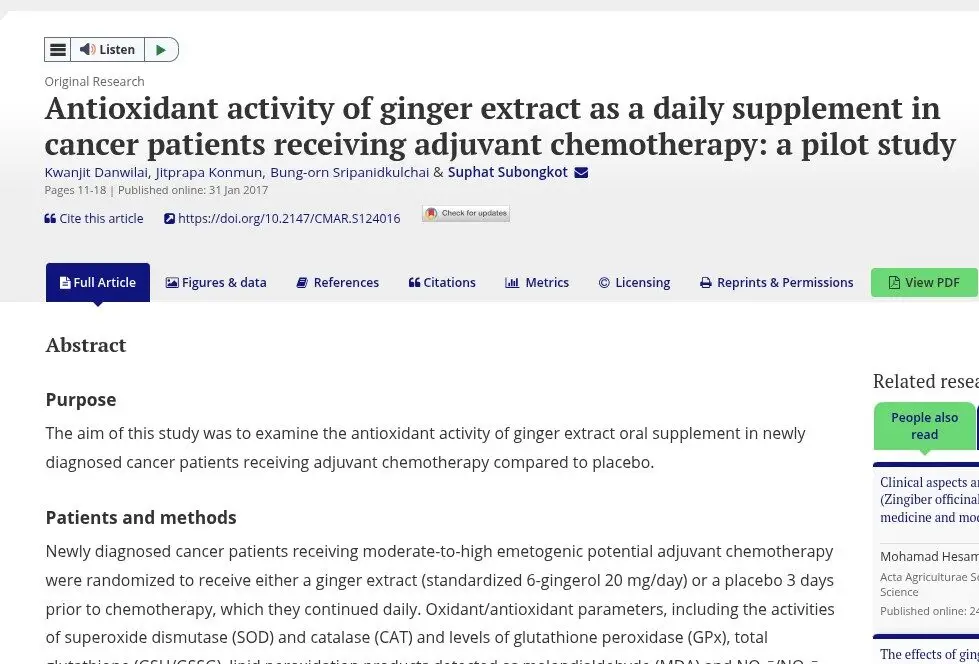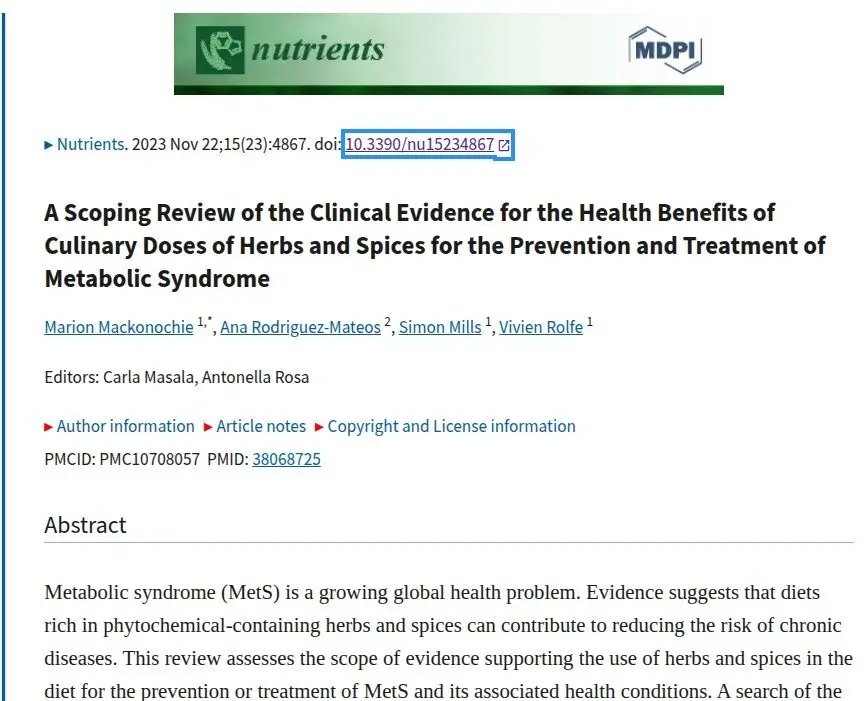Our strongest indication of a treatment effect on proliferation was the estimated effect on hTERT expression. A decrease in hTERT expression is consistent with previous reports, which found that ginger inhibited hTERT and c-Myc expression in human non-small lung cancer cells (24). While the estimated treatment effect on our other marker of proliferation MIB-1 was not as strong, the estimated effect was more pronounced in the upper sections of the colorectal crypts, suggesting that ginger may ...
The form creates your own page where you can describe your plan and upload details of supplements, functional foods and anything else you like to include
UPDATE an existing plan using the form below this one
ALWAYS ANONYMOUS
UPDATES : Select the name of your plan below (“select post”)
Make any changes you want including uploading new files. These will replace your earlier entries.
In case of any issue just reach out using our contact form





